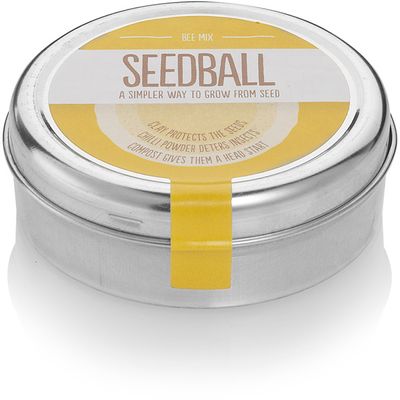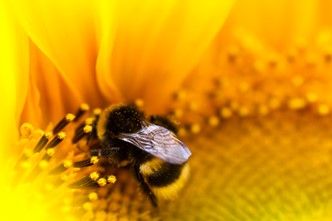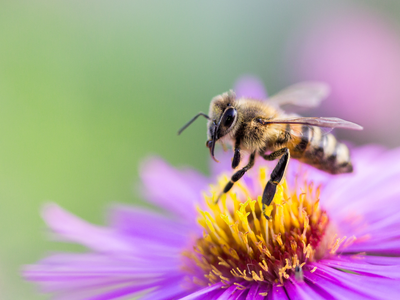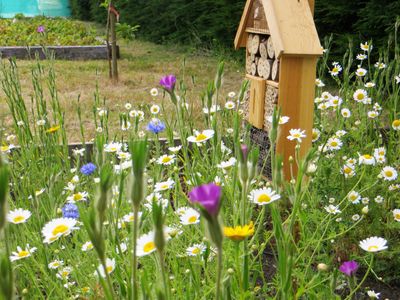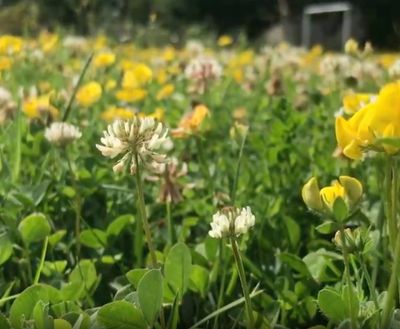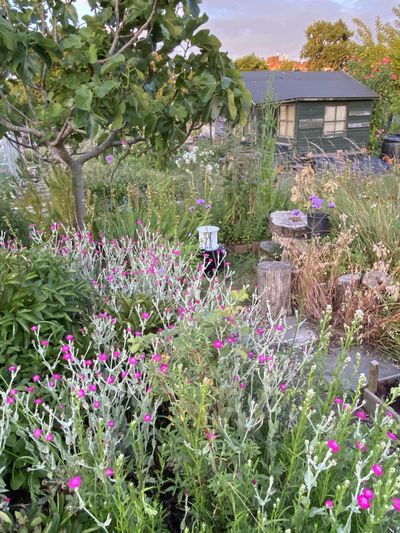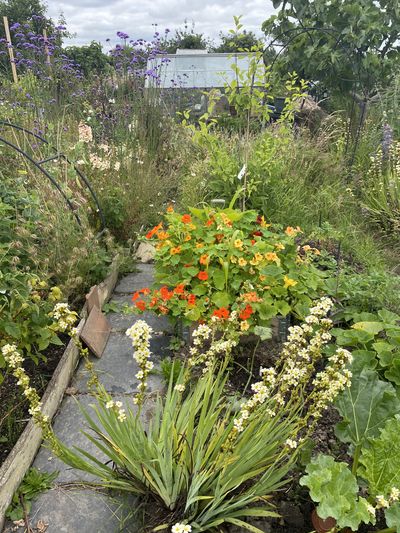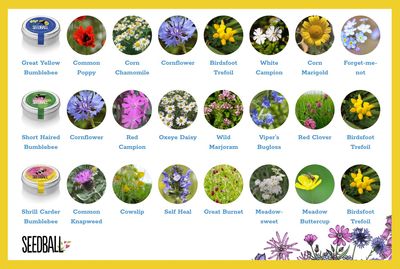Support biodiversity this National Allotment Week with a sprinkle of wildflowers on your plot!
Published:
Read Time: 2 mins
As National Allotment Week approaches (12th – 18th August 2024), disruptive wildflower company Seedball is highlighting the importance of biodiversity and why it’s now more crucial than ever to entice pollinators to plots. By introducing sections or borders of wildflowers, allotments can not only become more diverse, but can also provide more fruitful ground for an even better bounty of crops.
British wildflowers, once common in hedgerows and fields, have drastically reduced in number over the past 50 years, resulting in a staggering 99 per cent loss of wildflower meadows in the UK. The loss of wildflowers has had a detrimental impact on insect and pollinator populations. Allotments are unique areas that can help play a part in increasing the wildflower population to support these important species.
The National Allotment Society stresses that it is vital that we protect and encourage pollinators, such as bumblebees and butterflies, not only to help them thrive, but also to support plant growth and development. Pollinators travel between plants carrying pollen on their bodies, which is critical for the reproductive system of most flowering plants. In fact, these small but mighty beings are responsible for bringing us one in every three bites of our food!
Allotments play an important role in providing wildlife corridors and habitats, and scattering seed balls is a fool-proof way to grow plant species that will encourage beneficial wildlife to visit them. Pollinators, just like us, have favourites when it comes to choosing a snack, so for anyone looking to encourage bees to their plot – which is a great idea as they are fantastic pollinators - a tin such as the Bee Mix is a perfect choice, as it contains 20 seedballs with around 30 bee-friendly seeds in each one. The mixture of flowers, including Birdsfoot Trefoil, Foxglove, Red Clover, Viper’s Bugloss and Wild Marjoram, have all been named by the Bumblebee Conservation Trust as varieties that bees love.
Dr. Emily Lambert from Seedball, said: “Introducing wildflowers to an allotment plot is not only a great way to encourage important pollinators, but it can also provide a beautiful splash of colour to brighten up any allotmenteers’ day! Allotments are of course used primarily to grow food, which is very important, but introducing pollinator-friendly wildflowers can bring more helpful wildlife into your environment, ultimately helping with boosting crops long term, so it’s a win-win situation!”
It’s time for a wildflower revolution – and that includes bringing more to allotments! Find out more about how Seedballs are made and how to use them at https://seedball.co.uk/
Ends
Editors notes
Seedball was founded by two conservation scientists wanting to boost biodiversity and help wildlife.
Seedball Ltd is an innovative organisation on a mission to help increase the abundance of British wildflowers and the wildlife that depends upon them.
Owned by Project Maya – a non-profit enterprise - Seedball manufactures wildflower seed balls using a unique innovation of wildflower seeds mixed with clay, peat-free compost and chilli powder to naturally protect seeds from predators. Its products are sold in over 500 stores in the UK, including Kew Gardens, The Woodland Trust and Blue Diamond Garden Centres, as well as online retailers such as Crocus and Marie Curie. Each year, Seedball also donates products to hundreds of schools and community groups to help support their nature projects.
